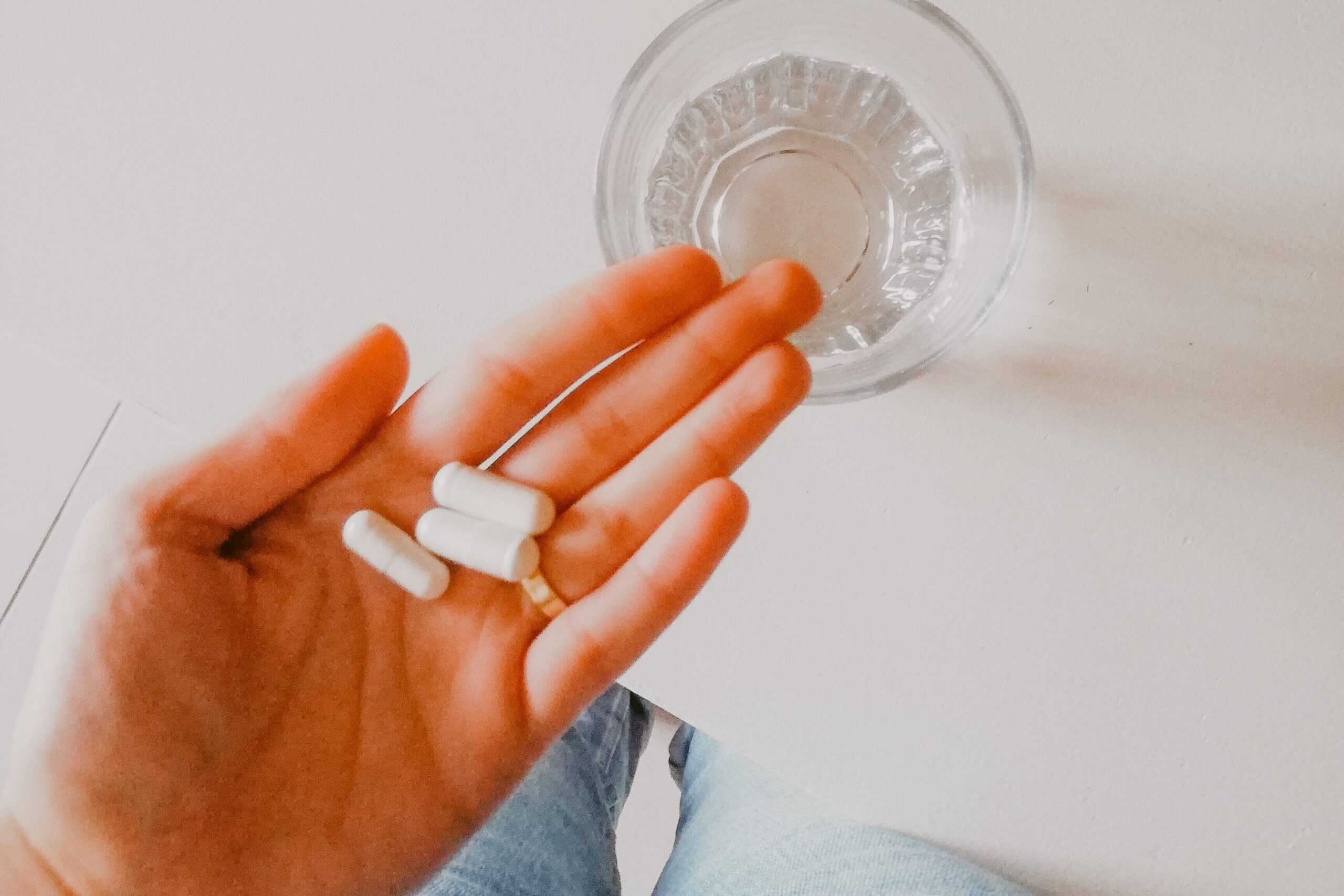Magnesium is the most abundant mineral in the body. It’s involved in over 300 biochemical reactions, and also serves as co-enzyme, meaning even more functions where magnesium is needed as an essential partner.
On a cellular level, it helps regulate a steady heartbeat, repairs DNA, supports liver detoxification, bone formation and strength, and keeps blood sugar steady.
On a physical level, magnesium is effective in reducing stress, depression and anxiety by supporting the HPA axis (our adrenal stress response). It also improves relaxation and muscle recovery, reduces symptoms of PMS and can massively alleviate chronic migraine headaches.
The problem: it is extremely difficult to get all the magnesium we need from food alone. The U.S. Food and Nutrition Board recommends 320mg daily for women, yet the most recent national study shows average consumption is closer to 235mg/day. A recurring magnesium deficiency of this size can result in symptoms that make us feel like we’re operating at half capacity.

The solution: introduce a high-quality supplement. When browsing supplement brands, the variety of magnesium types can be overwhelming. Some are ideal for constipation, while others are better suited for symptoms of depression.
How do I know if I’m deficient? Because magnesium is so widely utilized in the body, symptoms of a deficiency can show up virtually anywhere. Well-known symptoms include fatigue, consistent bouts of not feeling hungry, and recurring nausea. Lesser-known symptoms include headaches, chronic migraines, panic attacks, high blood pressure, severe PMS cramping and constipation. Deficiencies can also be triggered by a diet low in whole foods, frequent alcohol, or consistent use of medications like proton pump inhibitors (Prilosec, Nexium, Prevacid), diuretics or laxatives (Dulcolax, MiraLax, Senekot).
This is interesting, but what is right for me? Continue reading below to compare which magnesium type best fits your health goals.
*Always consult with your primary care physician or functional practitioner before starting any supplement regimen.*
- Magnesium glycinate:
One of the most widely available magnesium types, as it has a high bioavailability without a laxative effect, and will not cause digestive upset when taken at a higher dose. Magnesium glycinate is better known for its calming effect that is proven to induce muscle relaxation and ease stress, helping individuals to fall asleep faster. For this reason, it’s best taken at night, preferably 1 hour before bedtime.Try This: Pure Encapsulations Magnesium Glycinate - Magnesium L-threonate:
This form of magnesium binds to the amino acid threonine that helps anxiety, depression and PTSD. It has been shown to improve cognition, memory, and enhance neuroplasticity, our brain’s ability to modify, change and adapt for lifelong learning. With more emphasis on cognitive function, magnesium L-threonate can be taken any time of day.Try this: Life Extension Neuro-Mag Magnesium L-Threonate - Magnesium citrate:
This is the one that will help you #2. While magnesium citrate is effective in inducing a bowel movement, ingesting higher doses can lead to the depletion of other essential nutrients. Due to its timely digestive reaction, this one is best taken mid-day, at home, with ample electrolyte fluids close by.Try This: Thorne Magnesium CitraMate - Magnesium oxide: This form of magnesium binds to oxygen, and can be an effective natural treatment for heartburn, sour stomach and indigestion. Specifically, this form of magnesium can be used for severe constipation, or for rapid emptying of the bowels (ex: before colonoscopy or surgery). It’s often recommended as a better alternative to stronger laxatives that can be habit-forming, and should be taken sparingly.
- Magnesium malate:
For those who are especially active, magnesium malate is effective in enhancing energy production, supporting athletic performance, reducing muscle fatigue and promoting calmness without becoming drowsy. Due to its effectiveness, this is best taken in the morning or afternoon.Try this: Designs for Health Magnesium Malate - Magnesium sulfate:
This form of magnesium is best absorbed through the skin, primarily known as Epsom salts. Used in soaking, magnesium sulfate promotes muscle relaxation and recovery, while promoting a steady state of calmness. When looking for aromatherapy salts, stick to ingredients with organic, essential oils over chemically-made added fragrances. Try: SaltWorks Ultra Epsom
Supporting research:
To learn more about incorporating magnesium-rich foods, click here: https://my.clevelandclinic.org/health/articles/15650-magnesium-rich-food
- “Magnesium Cheat Sheet” https://dhrupurohit.com/try-this-magnesium-cheat-sheet/
- “The 16 Best Magnesium Supplements” https://www.mindbodygreen.com/articles/best-magnesium-supplement
- “Dietary Magnesium Intake” https://pubmed.ncbi.nlm.nih.gov/12949381/
- “10 Ways Magnesium Can Improve Your Health, Hormones and Mood” https://avivaromm.com/magnesium-for-relaxation/